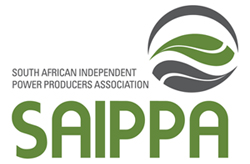POLICY, LEGAL AND STATUTORY
POLICY, LEGAL AND STATUTORY
The workgroup concentrates on policy aspects affecting Independent Power Producers (IPPs), including Integrated Resource Planning, Energy Policy, and upcoming policies like EPP. It provides input on legislation such as ERA for public comment or development, and handles licensing with NERSA. The group aims to eliminate legislative and regulatory barriers hindering IPP participation.
MARKET TRANSFORMATION
MARKET TRANSFORMATION
The workgroup focuses on the impact and opportunities arising from the unbundling of Eskom and the liberalization of South Africa's energy sectors. It takes input from policy, legal, and statutory groups to concentrate on implementation details. The group aims to maximize member participation in both wholesale and retail markets, covering not just market structure but also contractual aspects. It also contributes to developing a fair market code.
TX NETWORKS AND GRID ACCESS
TX NETWORKS AND GRID ACCESS
The workgroup aims to enhance Independent Power Producers (IPPs) participation by improving grid infrastructure at both transmission and distribution levels. It explores avenues like self-build schemes and IPTOs, focuses on resolving grid congestion, and addresses long-standing issues like third-party excess rules. The group engages in lobbying and concept paper development, covering not only transmission but also distribution networks that could limit IPP involvement.
TARIFFS AND WHEELING
TARIFFS AND WHEELING
The workgroup focuses on creating transparent, unbundled tariffs to ensure fair market participation for Independent Power Producers (IPPs). It emphasizes Cost of Supply (COS) and works on setting prices in various energy sectors, making subsidies and system charges clear. The group also analyses and unpacks elements like wheeling, net-metering, and tariff regulation to distinguish between the cost of supply and rate-making, aiming for maximum IPP participation.
GRID CODES
GRID CODES
The workgroup focuses on improving grid codes in South Africa to maximize Independent Power Producers (IPPs) participation. It contributes to the development or amendment of existing codes to address gaps or inconsistencies that could hinder IPPs. The group also works to raise awareness about the importance of these codes in both wholesale and retail markets to ensure optimal conditions for IPP involvement.
